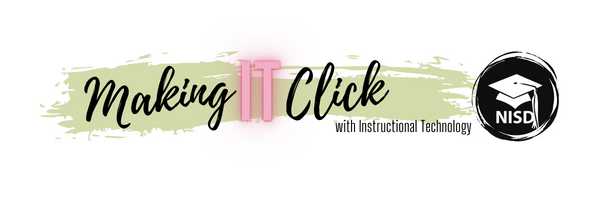3rd Grade students at Hatfield and Beck Elementary broke down the walls to their classrooms to virtually collaborate with one another to display, explain, and justify multiplication and division strategies to solve word problems. Students were challenged to accurately articulate his/her reasoning as to the why and how they know the answer and methods for arriving at an answer were accurate and reasonable. By using Northwest ISD’s math department’s success criteria for a justification. This opportunity inspired students to provide specific and vital feedback in a supportive role using Screencastify.
3rd Grade teachers, Carrie Denton (Hatfield Elementary) and Dan Flank (Beck Elementary) attended a Curriculum Preview hosted by Northwest ISD’s Math Instructional Coaches. The idea for this learning experience derived from a district math PLC. The focus for the meeting was about teaching students how to provide strong justifications, which could only be the result of a common understanding and definition of what a justification is and looks like using a common rubric. Mrs. Denton, Mr. Flank, and their table mates discussed how one of the activities they participated in would be very beneficial to their students. Shortly after discussing interest, Mr. Flank and Mrs. Denton determined a math word problem for students to complete, then established a timeline for completion to send the work to other campus. Students then received work from a different campus, analyzed it, and provided feedback using Screencastify. These products were all shared in a folder on Google Drive. Once received, students viewed the work of the other campus, discussed glows and grows, and then recorded feedback on Screencastify.
Throughout the year Mrs. Denton’s and Mr. Flank’s students have provided verbal feedback to their classmates. Screencastify was transformational because it allowed them to take their feedback tools to the next level by allowing them to share with students not even in the room! Mrs. Denton believes Screencastify helped her learners hear their feedback and see their body language when sharing, causing them to deeply analyze their feedback skills. Screencastify also allowed for self-reflection and class reflection empowering students to see their growth and abilities shine through this process. Mrs. Denton loves how this tool allows the students to interact with the work on screen. Not only are they recording their voice, but they can manipulate things on the screen for the viewer to see. This allows the viewer to see specifically what the students were analyzing and providing feedback for.
Mr. Flank’s believes Kami can be an incredible tool for children to use for a problem solving block problem. Like on paper, you can show your thinking, it just happens to be electronic and can be shared with a wider range of people. He also believes Screencastify is very versatile because students can record themselves or the desktop to provide visual and audio tutorials and presentations.
Mr. Flank and Mrs. Denton both have goals to continue digital problem solving by empowering their learners to share their work beyond the walls of the classrooms. Both educators are working on refining digital problem solving opportunities for the upcoming year. Mr. Flank and Mrs. Denton believe it is crucial for students to go through the problem solving process and justification, but also believe it can be done in an innovative way.


No comments:
Post a Comment
Note: Only a member of this blog may post a comment.